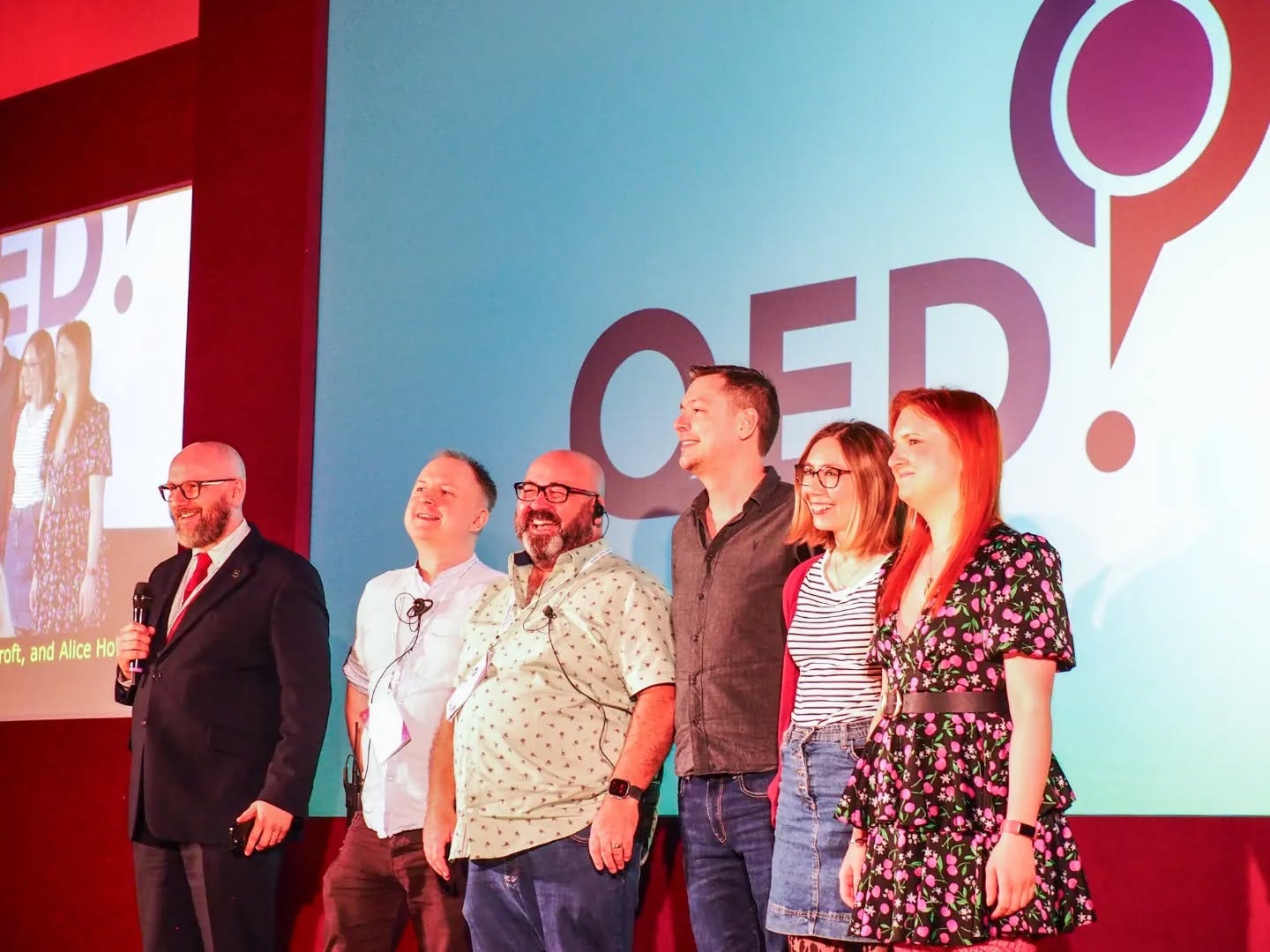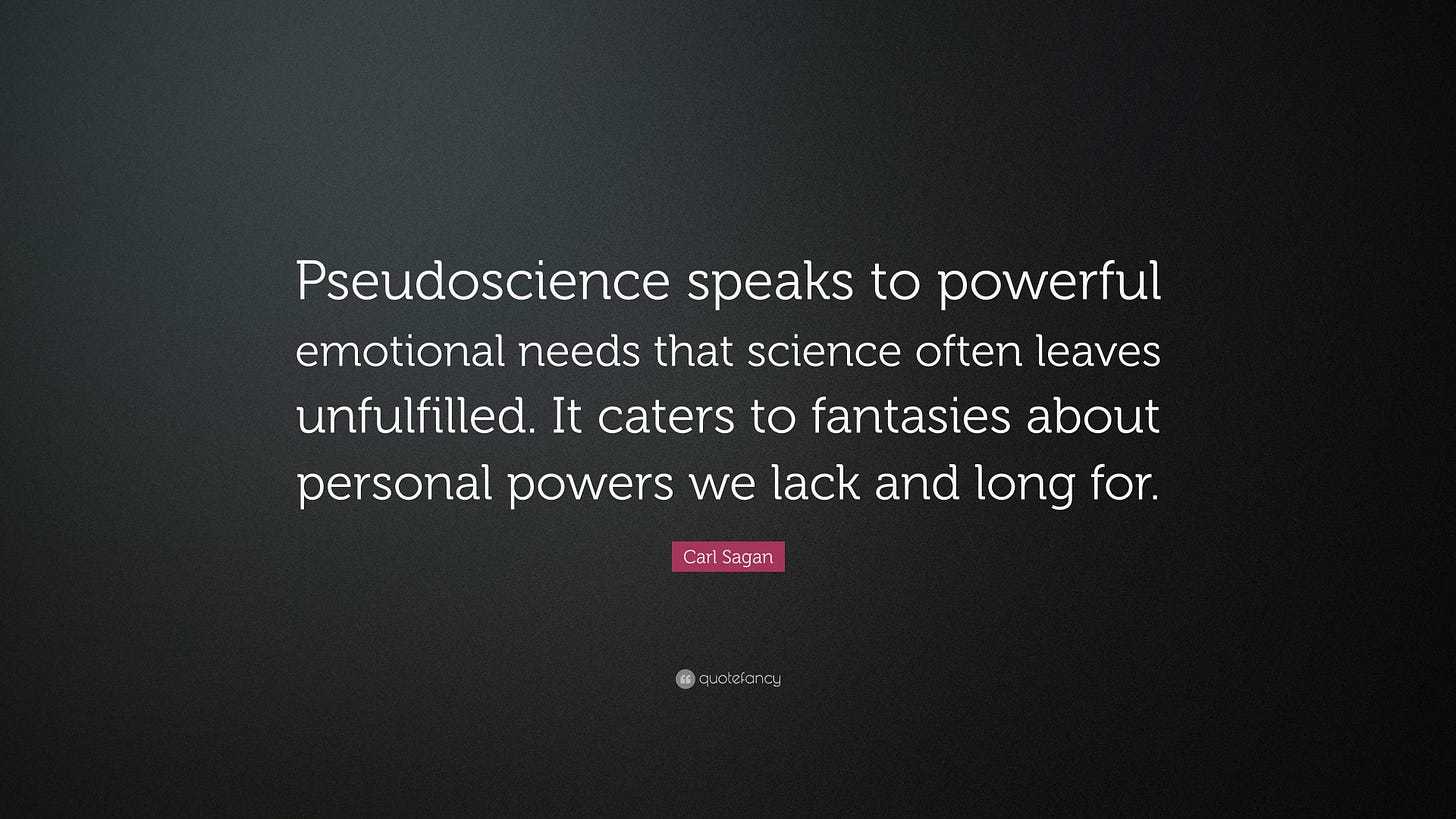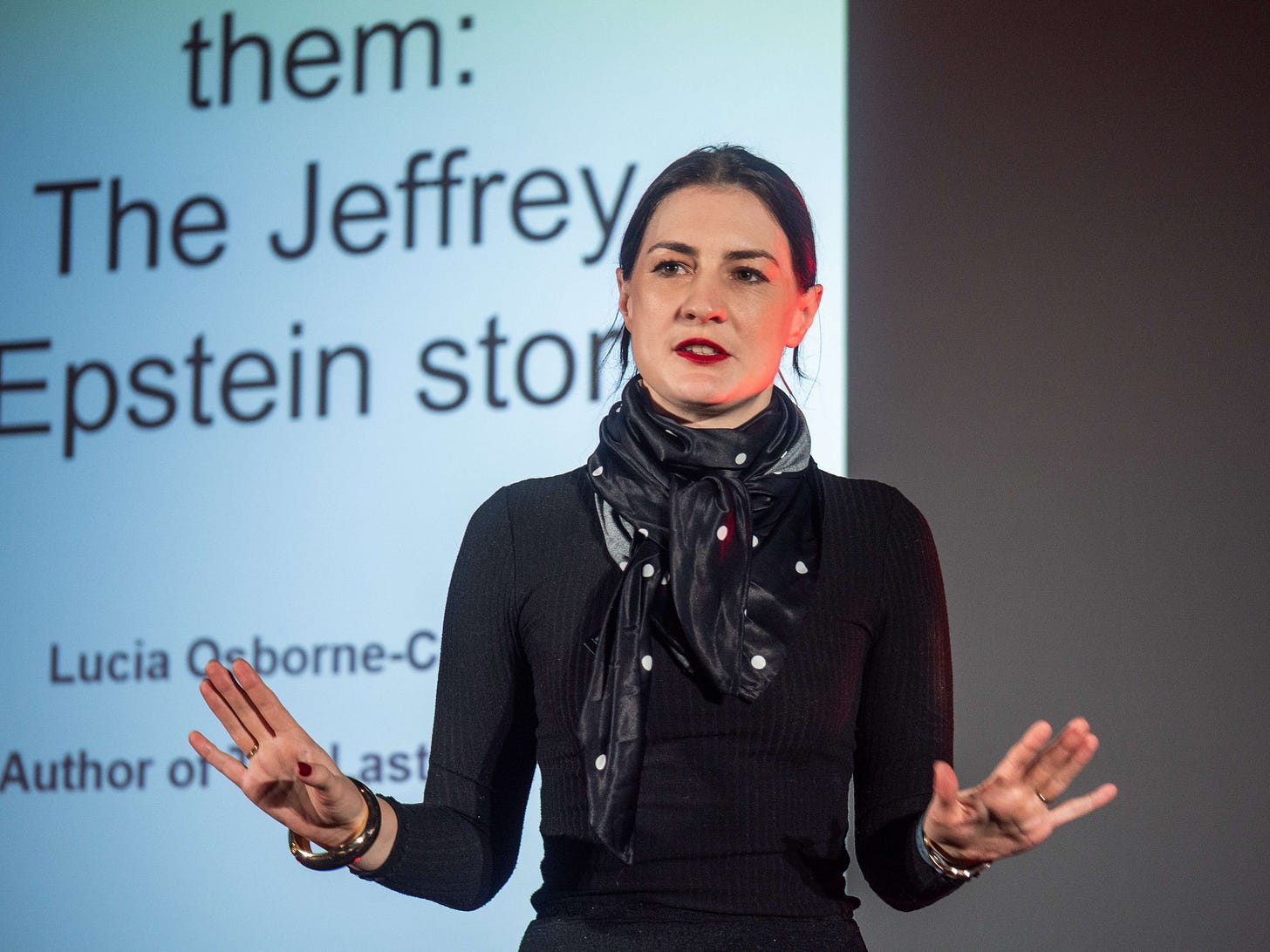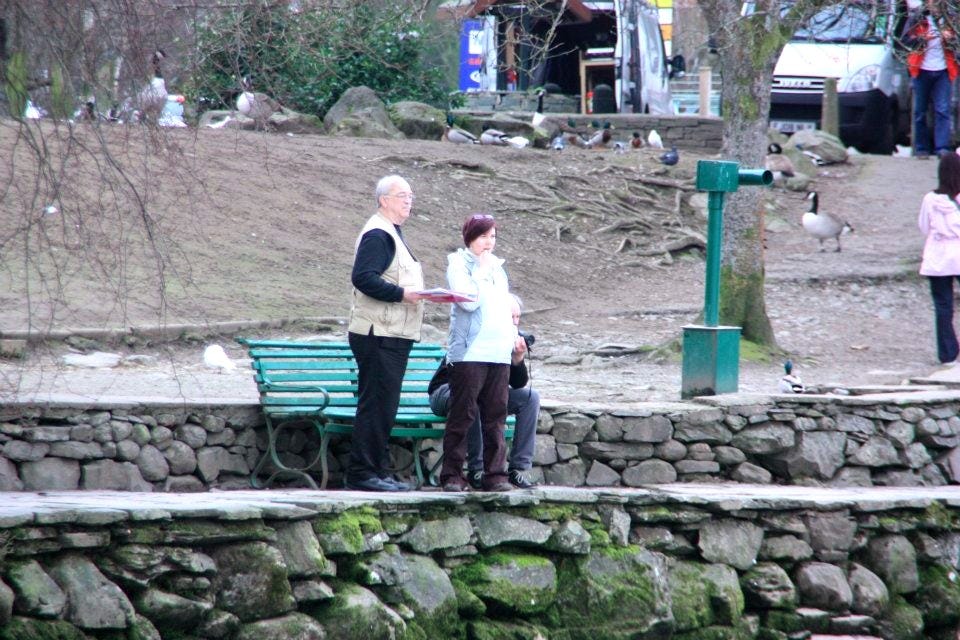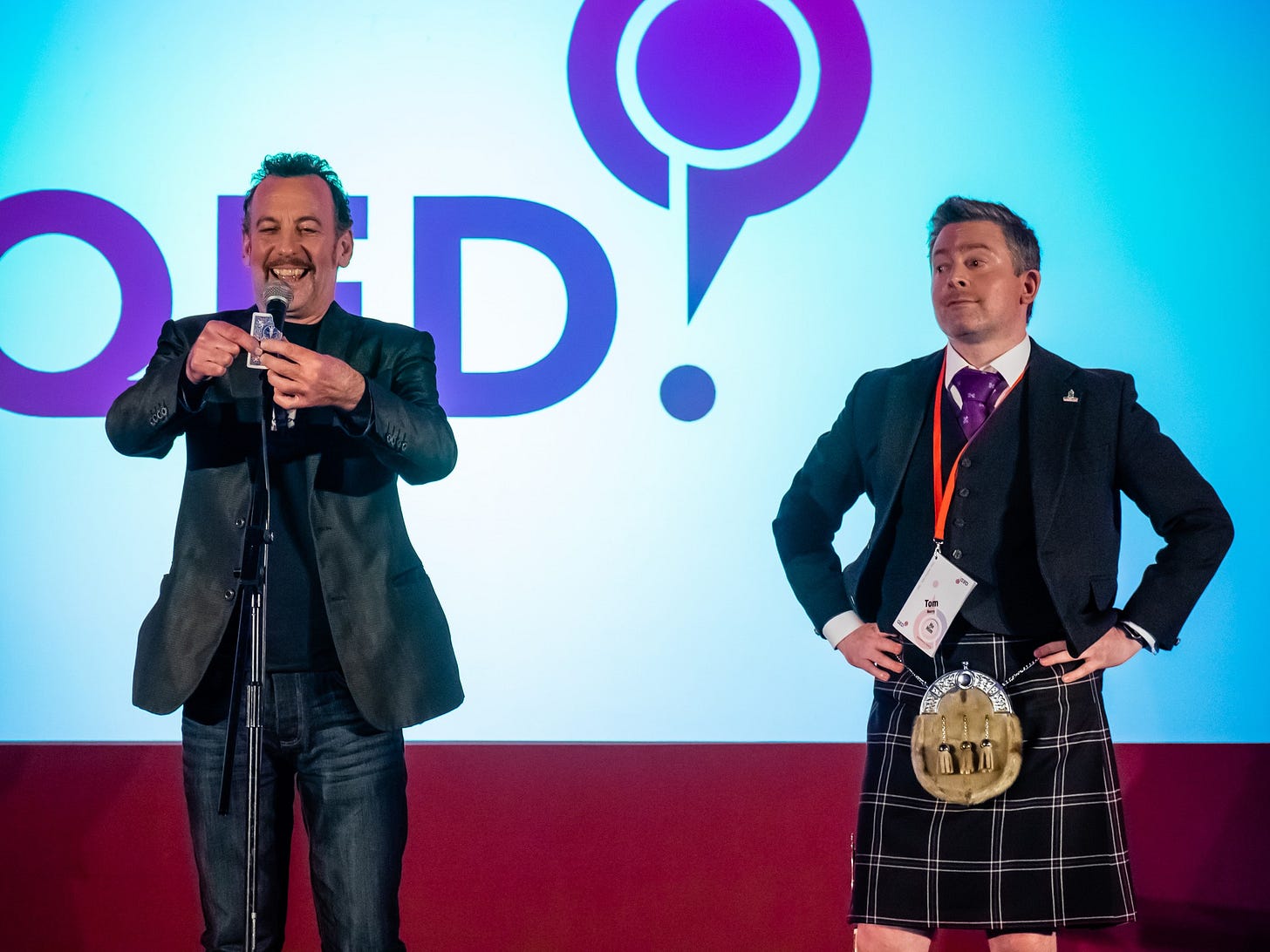The Past, Present, and Future of QED
The conference that proved we can achieve great things has come to an end, but the future of the grassroots skeptic movement has just begun.
There’s a particular kind of jet-lag that only a QED weekend gives you. It’s not the travel, exactly - it’s the social whiplash of being surrounded by people who care about evidence, care about people, and do both at the same time. It’s learning things you didn’t expect to learn (about bomb detectors, vultures, body farms, or witch-trial panics), re-learning things you thought you already knew (about groupthink, placebo, and your own blind spots), and remembering why any of this matters once you leave the comfort of the conference hotel and step back into your ordinary life.
This October marked the final QED – the end of a remarkable era – and the sense of loss is real. The yearly conference, held in Manchester, became an annual gathering of skeptic activists from all across the globe. The name is an initialism for Question, Explore, Discover, and these are themes that sit at the centre of its legacy.
A Grassroots Constellation
What QED leaves behind is bigger than nostalgia. It’s something I’ve said before, and still believe: there really is nothing quite like QED, and it’s conjured into being by a small group of unpaid volunteers around their lives, jobs, and families. That fact is both mundane and magical. Mundane, because every good community I’ve known has been powered by spreadsheets, school-run logistics, and “who’s got the lanyards?” Magical, because the result - thousands of people sharing a weekend of curiosity and care - feels bigger than the sum of those parts.
From the beginning, the conference has worn its DIY heart on its sleeve: we sell it out, we cheer the organisers until our palms sting, we plan the next year before we’ve unpacked from this one. But the deeper magic is that QED isn’t an echo chamber. The caricature from outside - “a bunch of people who don’t believe in X, Y, or Z congratulating themselves” - evaporates when you’re actually there. The conversations are self-interrogating as often as they are world-interrogating, and the community it builds is one that expects to look in the mirror.
That, in turn, shapes behaviour. The accessibility work has been exemplary in years past - front-rows reserved for those who best benefit from them, induction loop systems, volunteers on hand to assist those in need. And the plain-spoken harassment policy (“If you feel unsafe, tell these people; we’ll sort it”) does what good policy should do - it doesn’t perform panic, it establishes trust. It says “you’re safe here” and then behaves like it’s true.
If QED were only a slick weekend of lectures, it would be worth attending. But the reason I think it kept people coming back is the grassroots feel and that sense that your choices - what you read, how you debate, who you amplify, whether you file a complaint to Trading Standards - add up to a shared project. It’s an activist’s conference even when you’re just chatting over a coffee.
And the activism it encourages is neither puritan nor performative; it’s practical, plural, every day in nature, and stubbornly, stubbornly human. It’s no coincidence that the last QED made this explicit with Michael Marshall (project director of the Good Thinking Society) who noted that a good event doesn’t end with applause; it ends when audiences becomes community, and community becomes activists.
A Culture of Compassion
One of the quiet through-lines across the years is that QED treats compassion not as an add-on to critical thinking but as a method of it. That sounded woolly to me when I first noticed it. It doesn’t anymore.
Consider this triad:
Harm matters. That unchallenged nonsense kills people isn’t a neat metaphor; it’s a morgue log, and it’s why we bother. Meirion Jones’s talk about the ADE651 “bomb detector” lives rent free in my head. A dowsing gadget with a price tag of $10,000–$40,000 that didn’t detect bombs.
Or take Dr Cyriac Abby Phillips’ case study of a 14-year-old patient given unregulated alcoholic & arsenic remedies for 5 years until she had liver cirrhosis, and the baby treated with Mercury to “cure” autism.
People matter. Over the years, talks from a range of people including Petra Boynton, Noah Lugeons, Susan Blackmore, Daniel Jolley, Robin Ince, Carrie Poppy, and Paul Zenon, in different ways, made a case we needed to hear: advice-seeking, sense making, and grief are human constants. They make people vulnerable. The job isn’t to sneer at that fact, it’s to honour it - to meet it with clarity and care, not with contempt.
Methods matter. How we do outreach (and to whom) is as important as the rightness of our conclusions. I’ve long argued against turning activism into a dominance display. I prefer “softly, softly” routes - complaints to regulators, media literacy with local journalists, showing believers how to spot a cold read - mixed with judicious public stands.
That pluralist ethic also explains why QED gives space to arguments within skepticism itself. We’ve debated “guerrilla” approaches, public stunts, the line between art and deception in stage mentalism, the risks of chasing psychics out of town versus equipping audiences to walk out by themselves. I’ve been open, sometimes blunt, about thinking some tactics are counterproductive or too personal, and I still value that those conversations happen in public. Communities that can’t argue with themselves don’t grow; they calcify.
And this compassion-as-method was front and centre at the final QED, where a single quote from Carl Sagan via Dr Cyriac Abby Philips’ presentation, hung over the weekend like a thesis: ‘pseudoscience speaks to powerful emotional needs that science often leaves unfulfilled.’ If we ignore that, we’ll keep losing people to harm.
From Folklore to False Positives
If your image of a skeptical conference is ten hours of ‘well actually…’, the legacy of QED will disabuse you fast. Across the years I’ve learned things I didn’t even know I was curious about: how body farms advance forensic science, why menopause research deserves better translation into public understanding, the complexity of the psychology of conspiracy thinking (including my own susceptibility), and how a centuries-old panic rhymes with a modern Twitter pile-on.
Over the years, QED kept expanding my sense of what skepticism could be. It didn’t just tackle big-name pseudoscience or viral nonsense - it treated culture itself as a site of inquiry. Panels on satanic panics and witch trials reminded us how social fear curdles into moral certainty. Talks on paranormal investigation showed that rigor doesn’t have to be scolding - it can be generous, curious, and fun. Even ghost stories became tools for understanding how people make meaning under uncertainty.
Talks on rape myths, reproductive rights, the far right, media storytelling, and ideomotor effects all carried the same deeper message: knowing isn’t enough - we have to care, and we have to ask better questions. What on the surface may look like a list of talks about folklore or false positives was actually a cleverly crafted exploration of the map of human experience.
I’ve said before that QED isn’t the skepticism you see on TV. What I mean is that it’s nuanced, kind, engaged, and human even when it is uncompromising. It’s not the cartoon villain saying “you’re wrong”; it’s a room full of people saying “let’s get this right, and let’s remember people are in the story” and asking “how can we make sure we keep doing this right?”
The Hardest Skepticism is Self-Skepticism
One of the most durable lessons of QED for me is that the critical tools you use on other people’s claims must be usable on your own. If your principles don’t boomerang, they’re just slogans.
That commitment shows up in little ways (admitting a hasty tweet was a mistake; resisting the urge to dunk when a DM would do) and in bigger ones (owning that the feeling of certainty is not evidence, designing tests that could disconfirm your pet theory, asking “what would change my mind?” before you step onto a stage or into a thread). It’s also the root of my discomfort with tactics that substitute humiliation for persuasion. Name-and-shame tactics might get headlines, but they rarely change minds
Years ago I wrote about the temptation to treat activism as a battle of willpower. I still think that’s a trap. I’d rather spend an evening teaching someone how to spot a Barnum statement or a hot read than “chase a psychic out of town.” Easier said than done when you’re angry - and anger is often warranted because it’s borne of care. But if you’ve ever been a believer (I have), you know leaving a belief is less about being “owned” than about being offered better tools to make sense of your own experience.
Self-skepticism also means refusing selective outrage. If we’re prepared to brand Sylvia Browne “untrustworthy” because of a felony that is unrelated to her psychic claims while insisting that a felony doesn’t automatically ruin trust in someone we like, that’s not principle - that’s partisanship with a rationalist accent. The standard has to apply in all directions or it isn’t a standard.
The Movement Shifted and So Did We
The landscape has changed since my first QED in 2011. Some shifts at the events have been invigorating: a more international mix, better representation, a broader spread of topics, and more explicit conversations about accessibility, harassment, and the politics of knowledge.
Some shifts in the wider landscape outside of that hotel in Manchester have been grinding: culture-war forces, platform incentives that reward certainty theatre, the subtle drift from “we’re trying to figure things out” to “we’re right and they’re wrong” that can happen in any growing movement.
Inside all of that, QED has kept doing its unglamorous work: platforming nuance, holding space for disagreement, and insisting that compassion and criticism can coexist without either being diluted. And that they should and must coexist for either to be valuable.
That’s not to pretend there aren’t frictions - there are - but my experience (on panels, in hallways, and in the messy hours after) is that they’re handled as part of the work rather than a threat to the brand. When we argue about tactics - how confrontational is too confrontational, which “guerrilla” methods help and which harm, how it’s wrong to focus your skepticism on minorities with the least social power - we do it with receipts and we do it knowing some of us will keep doing different things. That’s fine. Movements need ecologies, not monocultures. They need fractures to build stronger.
The closing year hammered home a counter-pessimism beat: Sian Norris’s data on counter-messaging around far-right attacks on women’s reproductive health reminded us that even in a hostile information ecosystem, targeted, evidence-based responses still move outcomes, and Lucia Osborne-Crowley who spoke on her experience as a journalist reporting on the Ghislaine Maxwell trial, taught us how powerful storytelling is in defeating harmful, awful rape myths.
Pair that with Michael Marshall’s reminder that audiences are a potential community, and communities are where you find activists… and Andrew Copson’s humanist reminder that times may be grim but if embrace the bigger causes of human freedom and equality, we can and will prevail - and what you get is a mood that isn’t naive optimism so much as disciplined resolve.
QED Has Changed Me
I am going to miss QED because I have grown as a person alongside it. Some of the changes are obvious. I’m a better communicator for having watched the best in the business do it badly and then better, I’m a more careful thinker for having been wrong in public, corrected in public, and welcomed back to the conversation instead of shamed out of it. I’m also, frankly, braver - about filing an ASA complaint, about telling a producer that “balance” means more than two soundbites, about having difficult conversations about sensitive topics where misinformation rears its head with those I love, about insisting a panel make room for how we know, not just what we know.
Some changes are quieter. QED sharpened my sense that outreach is about invitations, not ultimatums. It has reinforced (again and again) that “humans are strange” and that grief reshapes cognition - that people’s needs aren’t a debating tactic to be batted away; they are part of the evidence base. It nudged me to finally study for, and graduate with by BSc (Hons) in Psychology. It gave me the strength to talk openly about my autism diagnosis (Robin Ince’s 2024 main stage talk is one of the Top 3 QED talks ever, in my opinion.)
And then there are the friendships and north-star memories - the panels with people I had admired long before I dared sit beside them (Susan Blackmore, Caroline Watt, David Clarke, Joe Nickell, Richard Wiseman); the 2012 trip from Manchester to Loch Ness with the late Joe Nickell, which remains one of those “this is my life?” moments I’ll always be grateful for - and that I know Joe was grateful to the organisers for because, in his own words, “this is the only time I’ll ever get to visit Loch Ness.”
Those bits don’t show up in the program, but they’re the program that keeps you coming back.
On The Great Skeptic Tradition
If folklore teaches anything, it’s that rituals aren’t trivial; they’re infrastructure. QED’s own little traditions - the opening video, the Friday mixer, the chicken-napkin (if you know, you know), the nerd T-shirts and pin badges, the rebel dinner, the elevator battles, the way the lobby and bar becomes a village square - do a social job. They help new people feel less new. They telegraph the norms: curious, kind, evidence-first. They make it easier to correct a friend and to be corrected by one. They make it easier to confess ignorance without losing face. They make it possible to feel loved when you feel unworthy of community.
That’s culture, not decoration.
It’s also… fun. And that matters. The Saturday night acts and the funny podcast tracks aren’t a fig leaf for substance; they’re a reminder that skepticism is allowed to laugh, allowed to play, allowed to be seen enjoying itself without apology.
In 2015, when The Skeptic presented the Ockham I was awarded (still surreal; my brother had to tell me later who’d handed it to me because my memory wiped), it wasn’t just a personal high. It felt like the community saying, “we see the work! keep doing it.” I’ve kept those moments on a mental shelf for the days I want to stop. I keep the award on my desk as a physical reminder that it does matter when it feels like it doesn’t.
In 2025, watching Dr Cyriac Abby Philips bear the brunt for telling hard truths has recalibrated my own appetite for risk: if he can face lawsuits, harassment, and state pressure to keep patients safe, the least I can do is file the complaint, write the piece, or back the colleague who’s catching heat.
The last QED
October 2025’s QED felt like a “you are here” dot on a map that keeps redrawing itself. The misinformation ecosystem has grown teeth: AI-assisted fabrication, memetic warfare baked into daily politics, far-right attacks on women’s rights, public-health sabotage dressed up as personal freedom, a truth that wants to be owned and rewritten by those who hold the power, and an attention economy that treats outrage as oxygen.
Against all of that, QED’s message wasn’t nostalgic or defensive. It was practical and forward-facing: skepticism is as important now as it has ever been - not because we are special, but because the problems we face are.
What stuck with me most wasn’t any single talk but a collective message: skepticism is not about posture, but about process. We are not here to be right - we’re here to practice getting less wrong, iteratively, publicly, and kindly. And that work happens locally more often than globally.
You don’t need a platform to matter. You need an hour, a week, a school, a newspaper, a moment to say “I think there’s something off here”, the courage to ask a question. Filing a complaint, flagging misinformation in a WhatsApp group, sharing the article a skeptic writes, reaching out to a local journalist who wrote junk science - those are all part of the toolkit.
In a time when outrage is cheap and certainty is sold by the algorithm, QED modelled something better: guarding your empathy as one of the sharpest tools in your critical thinking kit - it’s costly but it’s renewable, burns cleaner, and gets you much further.
We didn’t leave Manchester with a flashy slogan and a nerdy t-shirt. We left with a set of habits to practice - online, in our workplaces, with our families - and with the steady knowledge that the next time a friend says “I saw this thing…” we will be the person who can sit with them, pull on a thread, and help them find the seam.
What I Hope We Keep
What QED offered wasn’t just a weekend of talks - it was a model for how to live out skepticism in the world. It showed us that if we agree on core values of truth-seeking, countering harm, and compassion - then there’s room for a diverse ecology of approaches: policy nerds, pranksters, counsellors, methodologists, academics, teachers, archivists, podcasters, artists, programmers, journalists, magicians, folklorists... all contributing in different ways.
QED proved that accessibility isn’t a flourish, it’s foundational - those front-row blue chairs, the induction loops, the “tell us and we’ll fix it” ethos told people who we are before anyone said a word.
It reminded us, too, that self-reflection is a discipline: if you’re a skeptic and you find yourself squirming in a talk about conspiracy psychology, that’s growth. If you change your mind mid-panel, that’s how you model your critical thinking skills. QED created a space where being corrected didn’t mean being cast out - it meant you were paying attention.
That’s the version of this movement I want to see survive.
Token “balance” in the media has taught me how quickly a skeptical voice can be framed as a gimmick. The legacy of QED is the antidote: a movement where the fringe is mainstreamed as a topic worth doing well just as much as the bigger topics. Let’s keep offering that model to the broadcasters, journalists, and podcasters who’ll listen - and keep building our own spaces when they won’t.
So… What Now?
A friend once said that the best conferences give you two things: ideas and courage. QED has given me both, over and over again. It’s made me braver about kindness and more suspicious of contempt. It has reminded me that elitism is just a slur for expertise when people don’t like the results - and that the correct answer is not to apologise for standards but to make them welcoming and keep doing it.
Most importantly, it has kept me honest about myself. If there’s one lesson I want carved into the lintel above the QED stage in my memory, it’s this: the same skepticism you bring to others’ claims must be available for your own. If I can’t turn it back on myself, it’s not skepticism, it’s swagger.
I’ll end with a quote from Matt Dillahunty at QED 2015 that stuck in my head, because the line still says the quiet part out loud: ‘I don’t do this work because I’m a skeptic; I do it because I’m a humanist. I care about the world we’re creating.’
For one weekend each year, in a hotel in Manchester, I was reminded that I’m not doing it alone. And to the people who made the magic in their stolen hours - who booked venues, wrangled schedules, managed volunteers, emailed speakers, talked paranormal researchers down when they insisted they couldn’t possibly chair a panel, tested induction loops, ran the book stall, plugged in microphones, kept a livestream running, managed the queues, wrote codes of conduct, and kept promises - thank you, twice. And thank you once again.
If this was the last QED, it was a fitting coda. Not a victory lap, but a hand-off. The take-home wasn’t “remember how good this felt”, though we will. It was “you now have more tools than you did on Friday - go use them where you exist.”
The weekend didn’t soften the world’s edges - it sharpened our sense of where to push, and how.
Here’s to doing that work together.
Here’s to the future.



